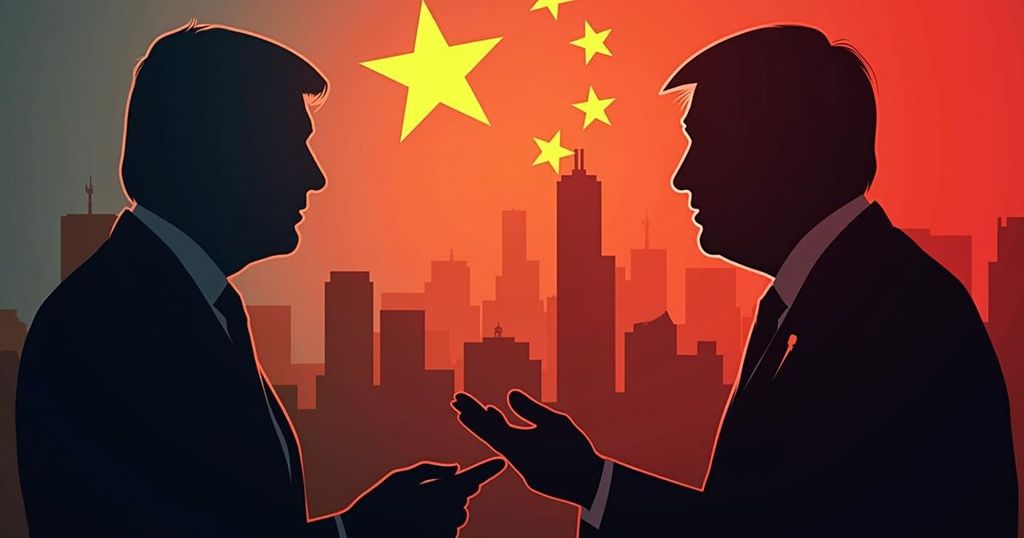The Biden administration is taking steps to prevent a “second China shock” through tariffs, according to U.S. Ambassador to China Nicholas Burns. He called for European collaboration to address China’s overcapacity and warned of potential sanctions against Beijing for supplying dual-use goods to Russia. Burns reflected on past lessons from economic reliance on China, emphasizing the need for diversified sourcing of critical materials.
The Biden administration is actively preventing a potential “second China shock” through the implementation of tariffs, according to Nicholas Burns, the United States Ambassador to China. Speaking from Beijing via video conference, Ambassador Burns voiced concern regarding the increasing challenges posed by China’s electric vehicle (EV) industry and urged European partners to collaborate on addressing the issue of China’s significant overcapacity in various sectors. Furthermore, he highlighted the necessity of curtailing the flow of goods that may aid Russia’s military efforts in Ukraine, warning that increased sanctions may be imposed if Beijing continues to supply dual-use goods to Moscow. Ambassador Burns emphasized the lessons learned from the COVID-19 pandemic, stating that nations should not solely rely on one source for critical materials. He remarked, “I think that all of us around the world, in every single country, learned from the pandemic, don’t be reliant on a single source for critical materials.” He contrasted the present situation with the influx of Chinese imports seen in the 2000s, which he referred to as the initial shock and which resulted in significant job losses within the US manufacturing sector, totaling more than one million jobs lost. His remarks were made during the Transatlantic Forum on GeoEconomics, hosted by the Atlantic Council in New York.
The topic at hand revolves around the growing economic rivalry between the United States and China, particularly in the context of global supply chains and manufacturing capabilities. The phrase “China shock” refers to the rapid influx of Chinese goods into the American market, which has significantly impacted various industries and the employment landscape in the United States. The anticipation of a “second China shock” raises concerns about a new wave of economic disruption that could echo the past, particularly concerning job displacement and reliance on foreign manufacturing. The relationship between China and Russia, especially regarding military support during the Ukraine conflict, further complicates the diplomatic landscape, necessitating concerted action from global allies.
In conclusion, the remarks by Ambassador Nicholas Burns underscore the Biden administration’s commitment to preventing a repeat of the economic disruptions faced during the early 2000s due to rising Chinese imports. By advocating for coordinated action among allies and emphasizing the importance of supply chain resilience, the ambassador’s statements highlight the need for strategic measures to address not only China’s industrial overcapacity but also its geopolitical maneuvers that may threaten international stability. As global dynamics continue to evolve, it is crucial for nations to remain vigilant and proactive in safeguarding their economic interests.
Original Source: www.scmp.com






